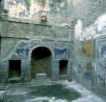
|
|
|
|
|
Russia (Irkutsk Oblast) |
 |
Second round of gubernatorial elections. Results : The incumbent Governor Boris Govorin leads Russia's State Duma deputy (Communist Party faction) Sergei Levchenko with more than 98% of the vote counted. Mr. Govorin has 47.42% of vote and Mr. Levchenko, 45.44%. |
|
Germany (Hesse) |
 |
Marlies Mosiek-Urbahn, Minister of Social Affairs who had been in the position for two years, wrote in her resignation to Premier Roland Koch that she had decided to resign immediately for personal reasons. Profil : Born le 9 août 1946 à Leipzig.1966/70 Études des jurisprudences à Freiburg, Lausanne, Genève et Bonn . 1970/74 Adocate. 1974/94 Juge au trunal des comptes, pour la dernière fois juge au tribunal fédéral des affaires sociales à Kassel . 1994/99 Membres du Parlement européen, oratrice politico-juridique de la fraction du parti populaire européen . Membre de la CDU. Depuis 7.4.1999 le ministre social de Hesse. |
|
Iran |
 |
Iran Parliament Approves Cabinet Iran's parliament approved all 20 of President Mohammad Khatami's nominees for Cabinet positions, filling out the government charged with advancing social and political reforms during his second term in office. The vote of confidence came after four days of deliberations on names that had drawn criticism from the president's reformist allies as well as hard-liners. The results were read out in open session after the 276 legislators present voted in a secret ballot. Each of the 20 nominees received at least 139 votes, the minimum required for confirmation. SEE MINISTER PROFILS NEXT WEEK |
|
Australia (Northern Territory) |
|
Northern Territory election. Results : Country Liberal Party Chief Minister Denis Burke conceded defeat in the Northern Territory election, allowing Labor to form its first ever government in the Top End. Mr Burke told the administrator he should invite Labor leader Clare Martin to form government. The Labor Party wins 13 seats against 10 for the ruling Country Liberal Party. |
|
Fiji |
 |
General election. |
VIPS VISITS
|
|
Megawati is scheduled to travel to Philippines, Vietnam, Laos, Cambodia, Myanmar, Thailand, Brunei, Singapore and Malaysia. Megawati said her country and the Philippines are negotiating bilateral agreements on forestry, tourism, social security, labor, manpower development, education and fishing. Megawati and Luong then witnessed a signing ceremony of an agreement under which state-run Vietnam Southern Food Corp will ship white, long-grain rice to Indonesia's National Logistics Agency (Bulog) over an one-year period, but prices and export quantities will be decided quarterly. |
|
|
Vietnam president to visit South Korea Hanoi maintains a good relation with Seoul and rarely refers to Korean actions during the Vietnam War, preferring to direct barb at the United States. It also regards South Korea as a key trading and investment partner. Officials in some provinces of Vietnam have claimed more than 1,000 people, mainly civilians, were killed in the late 1960s by South Korean troops, 300,000 of whom fought on the side of U.S.-backed South Vietnam against the communist North. During a visit to Hanoi in 1998, South Korean President Kim Dae-jung expressed regret over Korean actions in the Vietnam War, but did not apologise. Vietnam responded by saying it sought no apology from any nation that fought on its soil. |
|
|
EU Delegation to Visit Cuba The EU delegation is led by Belgian Foreign Minister Louis Michel, whose country holds the rotating EU presidency. During the visit, Mr. Michel meets with his Cuban counterpart Felipe Perez Roque and other officials. The visit comes after Cuban-EU relations hit a low after EU countries backed a motion at last year's U.N. Human Rights Commission condemning Havana's human rights record. |
|
|
Arafat Arrives in Beijing for Working Visit President of the State of Palestine and Chairman of the Palestinian National Authority Yasser Arafat arrived as guest of Chinese President Jiang Zemin. Describing the tour as "a working visit", Chinese Foreign Ministry Spokesman Sun Yuxi told Xinhua that Arafat is to meet Chinese leaders later Friday and brief the Chinese leadership on the current situation of the Middle East. The lingering Palestinian-Israeli conflict has caused heavy casualties and aroused close attention from the international community. The Chinese government has repeatedly called for "restraint of the maximum from both Israel and Palestine, and especially Israel, " and urged the two sides to resume negotiations. |
|
|
Jordan's King Abdullah in Bulgaria. Jordan's King Abdullah and Bulgarian President Petar Stoyanov discussed widening economic ties, the start of the first official visit by an Arab head of state to Sofia since communism collapsed in the country in 1989. The two leaders discussed opportunities for increasing Jordanian investments in Bulgaria and possible Bulgarian participation in building hydro-electric power utilities in Jordan. The two sides also signed a program for cooperation in the field of education, science and culture and agreements for cooperation in aviation transport, health care and medicine. Accompanied by his wife Queen Rania, Prime Minister Ali Abu al-Ragheb and Foreign Minister Abdulilah al-Khatib, the king will meet Prime Minister Simeon Saxe-Coburg in Bulgaria's second biggest city, Plovdiv. |
|
|
VIPS-GOV |
THIS WEEK'S STORY
Agust 24, 79 A.D. Pompeuii Herculaneum Vesuvius
erupts After centuries of dormancy, Mount
Vesuvius erupts in southern Italy, devastating the
prosperous Roman cities of Pompeii and Herculaneum and
killing thousands. The cities, buried under a thick layer of
volcanic material and mud, were never rebuilt and largely
forgotten in the course of history. In the 18th century,
Pompeii and Herculaneum were rediscovered and excavated,
providing an unprecedented archaeological record of the
everyday life of an ancient civilization, startlingly
preserved in sudden death. At noon on August 24, 79 A.D., this
pleasure and prosperity came to an end when the peak of
Mount Vesuvius exploded, propelling a 10-mile mushroom cloud
of ash and pumice into the stratosphere. For the next 12
hours, volcanic ash and a hail of pumice stones up to 3
inches in diameter showered Pompeii, forcing the city's
occupants to flee in terror. Some 2,000 people stayed in
Pompeii, holed up in cellars or stone structures, hoping to
wait out the eruption. A westerly wind protected Herculaneum
from the initial stage of the eruption, but then a giant
cloud of hot ash and gas surged down the western flank of
Vesuvius, engulfing the city and burning or asphyxiating all
who remained. This lethal cloud was followed by a flood of
volcanic mud and rock, burying the city. The people who
remained in Pompeii were killed on the morning of August 25
when a cloud of toxic gas poured into the city, suffocating
all that remained. A flow of rock and ash followed,
collapsing roofs and walls and burying the dead. Much of
what we know about the eruption comes from an account by
Pliny the Younger, who was staying west along the Bay of
Naples when Vesuvius exploded. In two letters to the
historian Tacitus, he told of how "people covered their
heads with pillows, the only defense against a shower of
stones," and of how "a dark and horrible cloud charged with
combustible matter suddenly broke and set forth. Some
bewailed their own fate. Others prayed to die." Pliny, only
17 at the time, escaped the catastrophe and later became a
noted Roman writer and administrator. His uncle, Pliny the
Elder, was less lucky. Pliny the Elder, a celebrated
naturalist, at the time of the eruption was the commander of
the Roman fleet in the Bay of Naples. After Vesuvius
exploded, he took his boats across the bay to Stabiae, to
investigate the eruption and reassure terrified citizens.
After going ashore, he was overcome by toxic gas and died.
According to Pliny the Younger's account, the eruption
lasted 18 hours. Pompeii was buried under 14 to 17 feet of
ash and pumice, and the nearby seacoast was drastically
changed. Herculaneum was buried under more than 60 feet of
mud and volcanic material. Some residents of Pompeii later
returned to dig out their destroyed homes and salvage their
valuables, but many treasures were left and then forgotten.
The remains of 2,000 men, women, and children were found at
Pompeii. After perishing from asphyxiation, their bodies
were covered with ash that hardened and preserved the
outline of their bodies. Later, their bodies decomposed to
skeletal remains, leaving a kind of plaster mold behind.
Archaeologists who found these molds filled the hollows with
plaster, revealing in grim detail the death pose of the
victims of Vesuvius. The rest of the city is likewise frozen
in time, and ordinary objects that tell the story of
everyday life in Pompeii are as valuable to archaeologists
as the great unearthed statues and frescoes. It was not
until 1982 that the first human remains were found at
Herculaneum, and these hundreds of skeletons bear ghastly
burn marks that testifies to horrifying deaths. Today, Mount Vesuvius is the only
active volcano on the European mainland. Its last eruption
was in 1944 and its last major eruption was in 1631. Another
eruption is expected in the near future, which could be
devastating for the 700,000 people who live in the "death
zones" around Vesuvius.



![]()
|